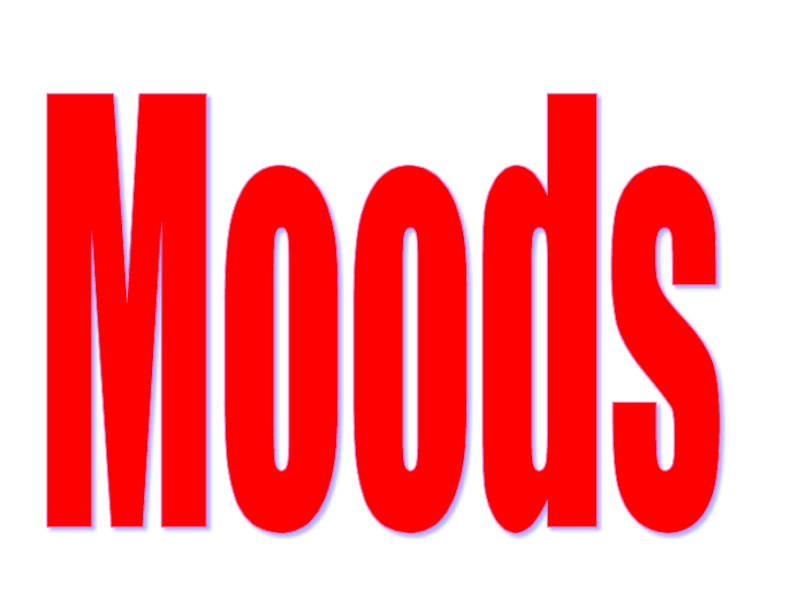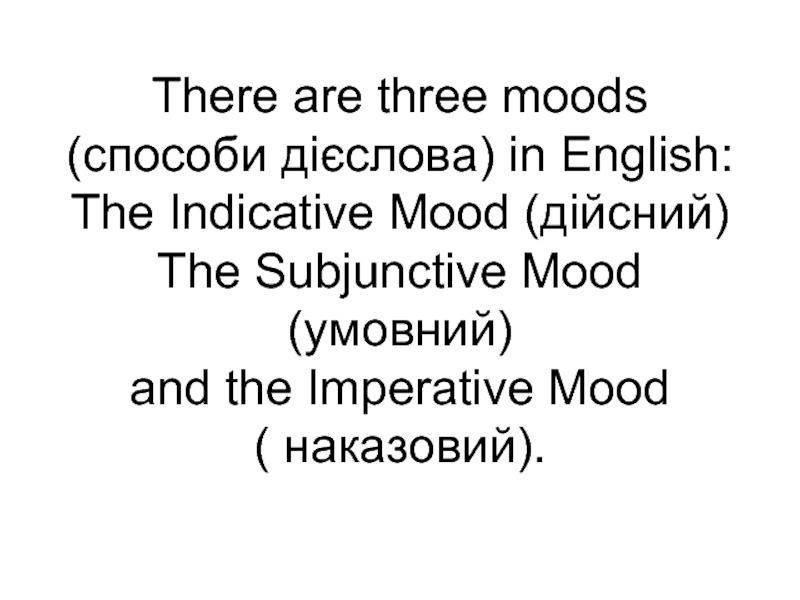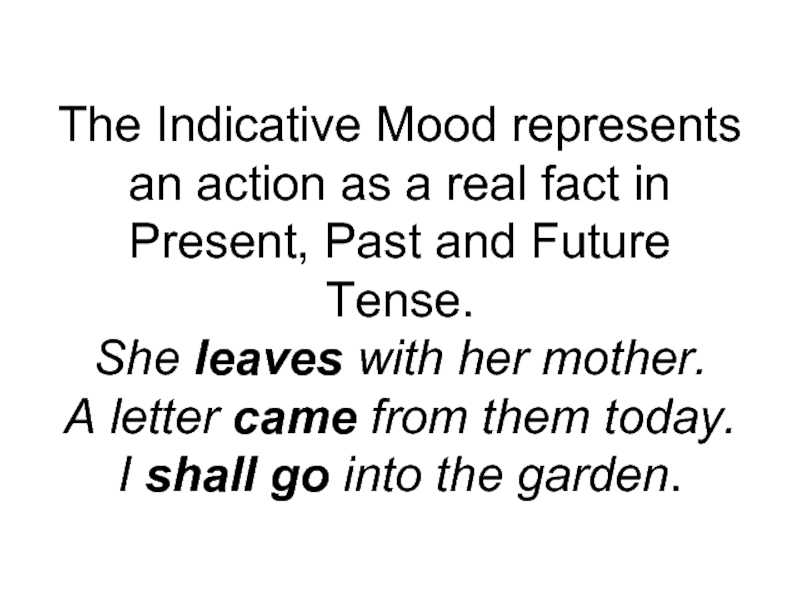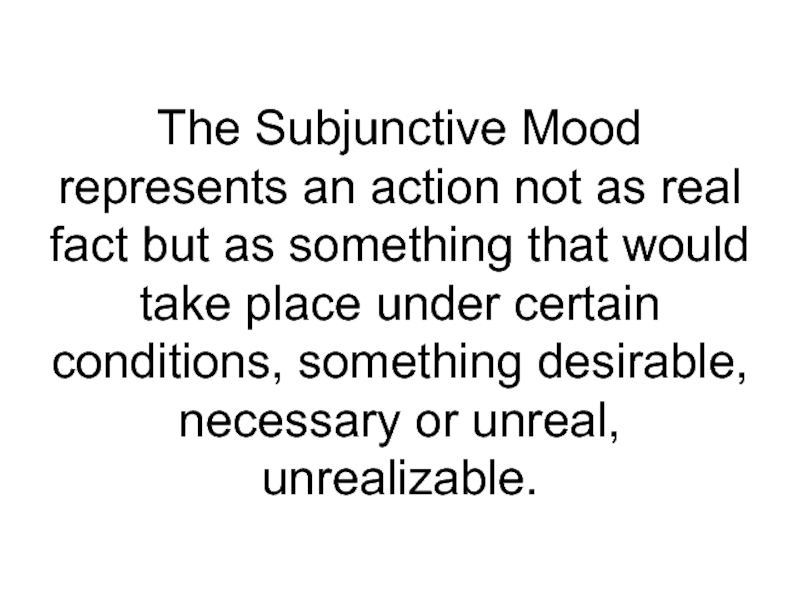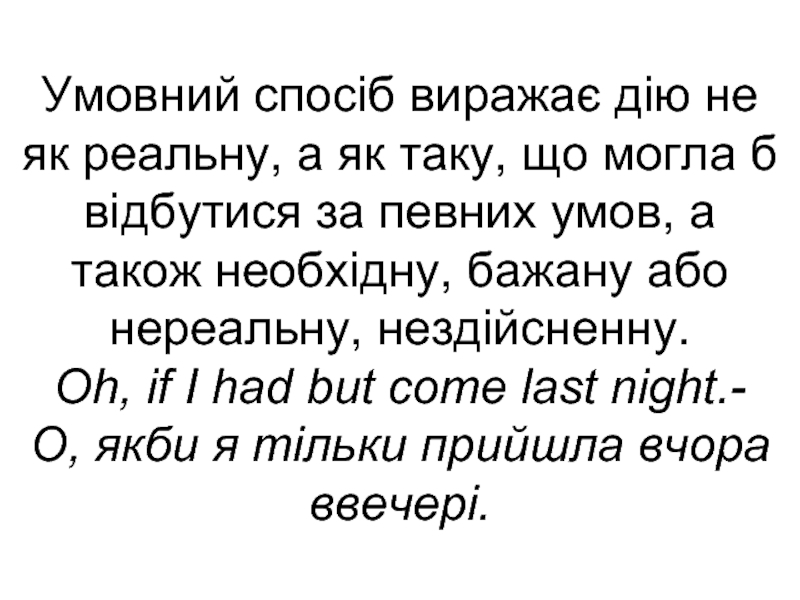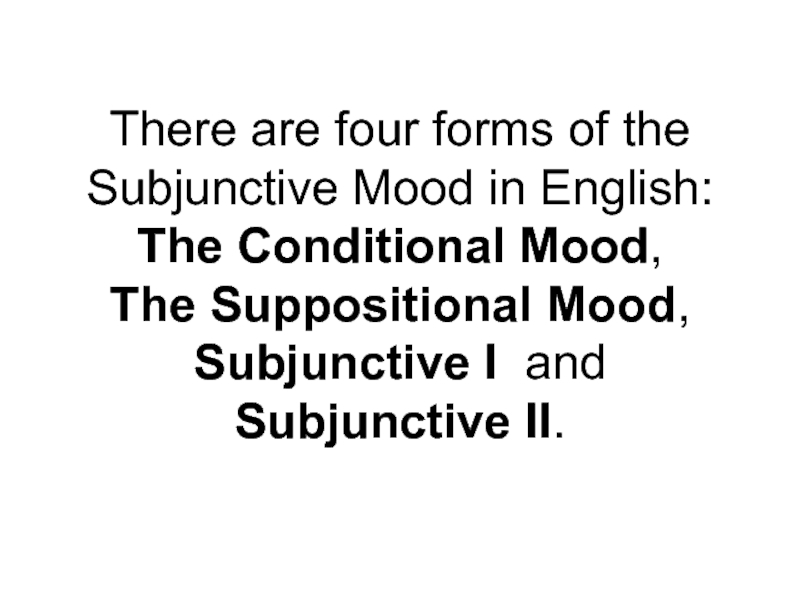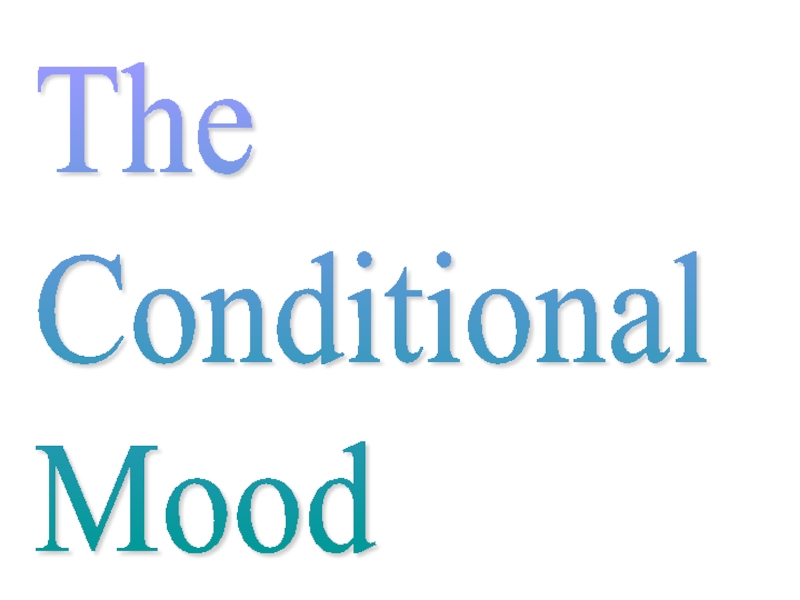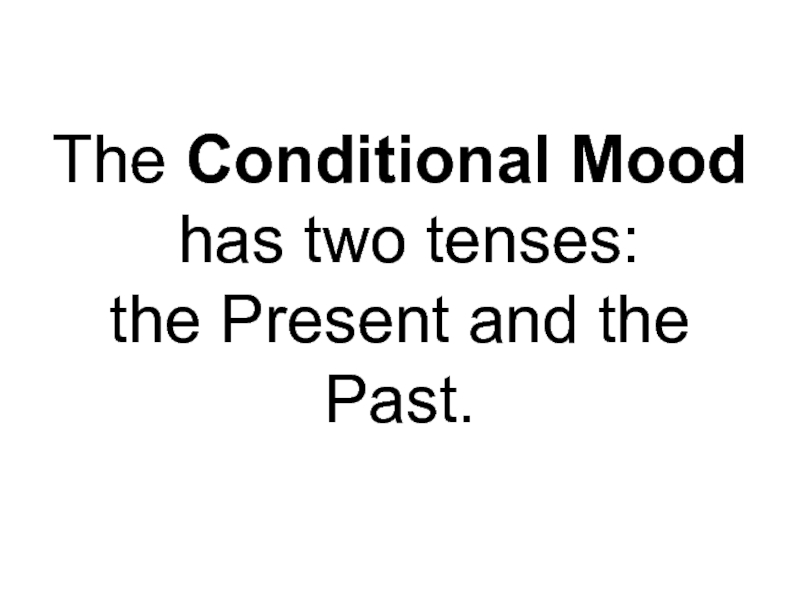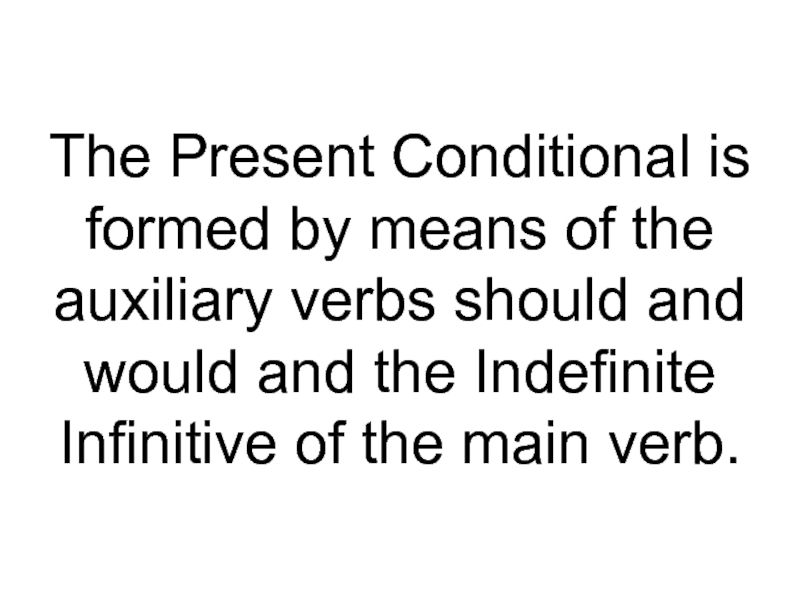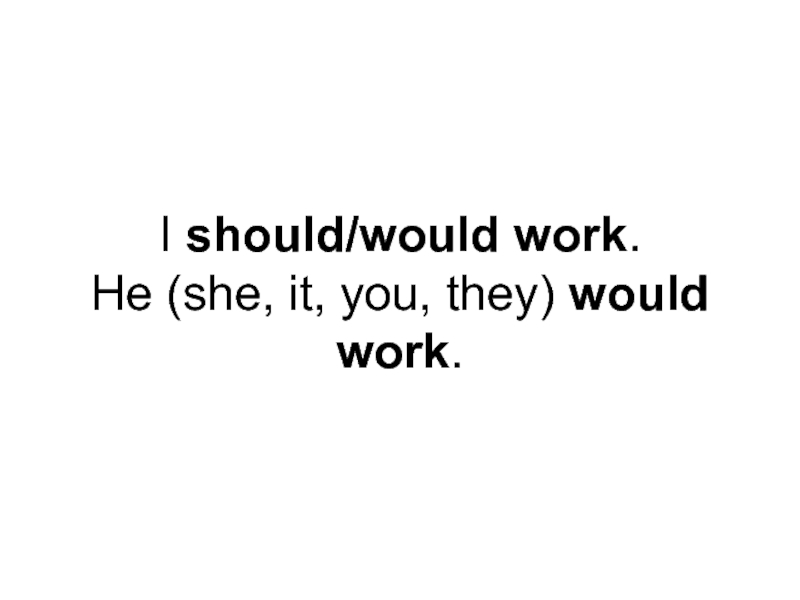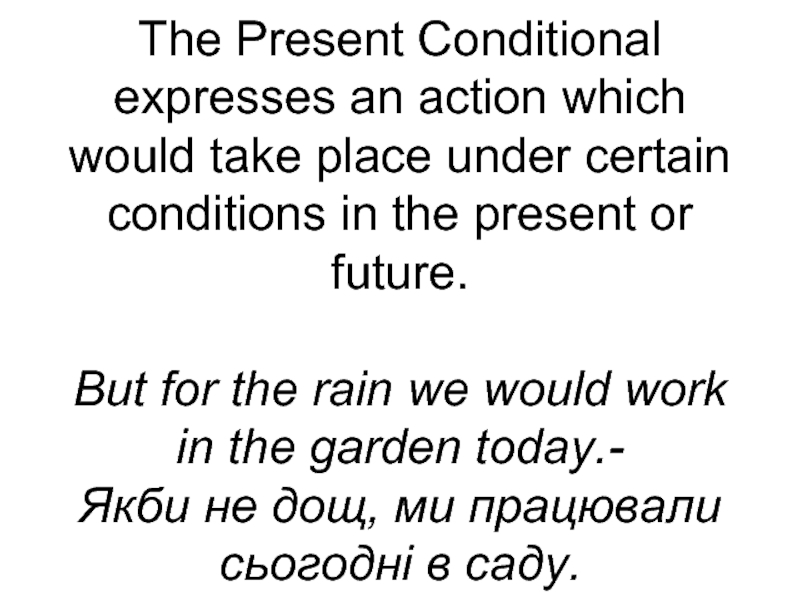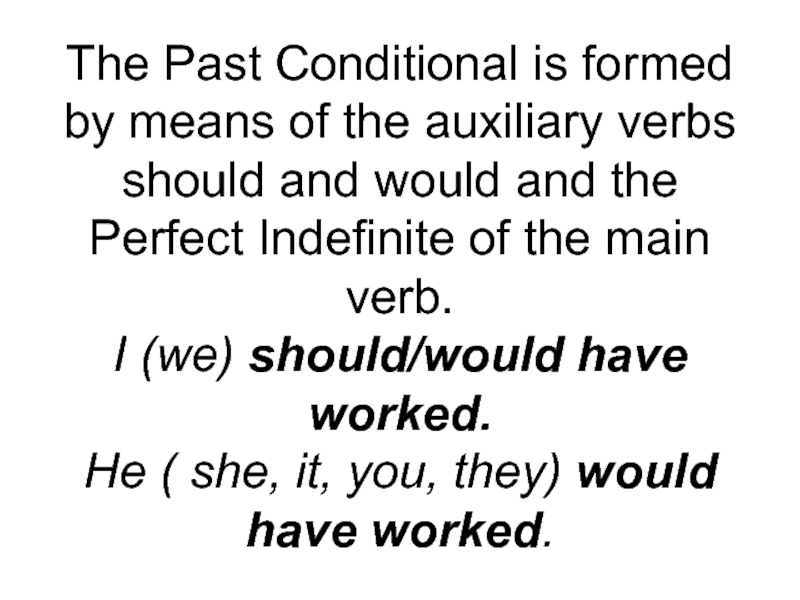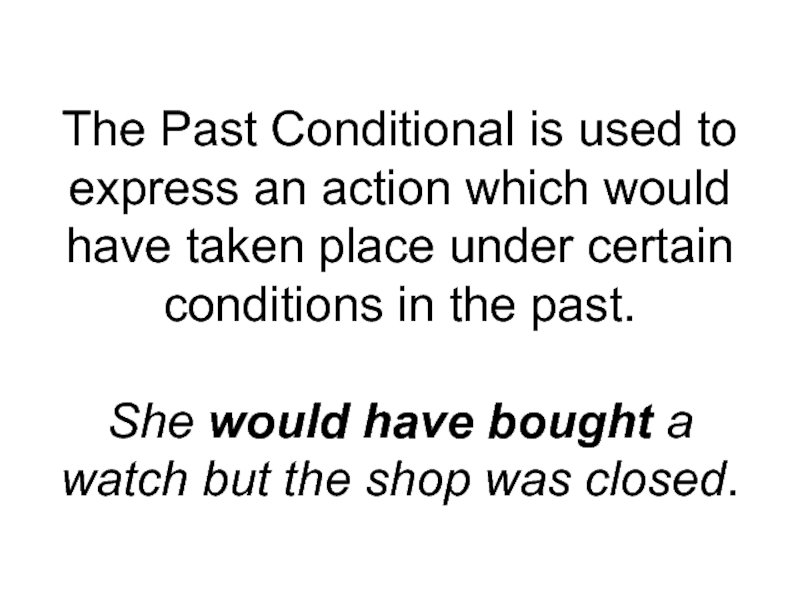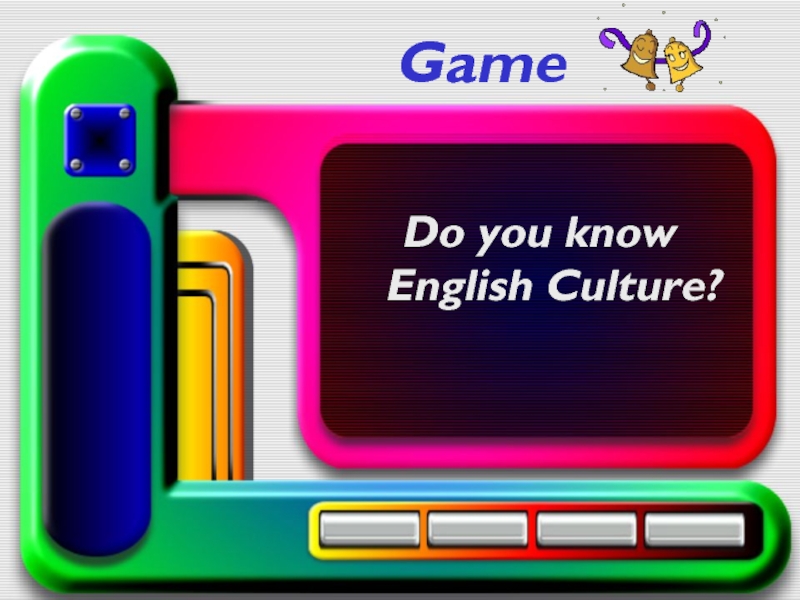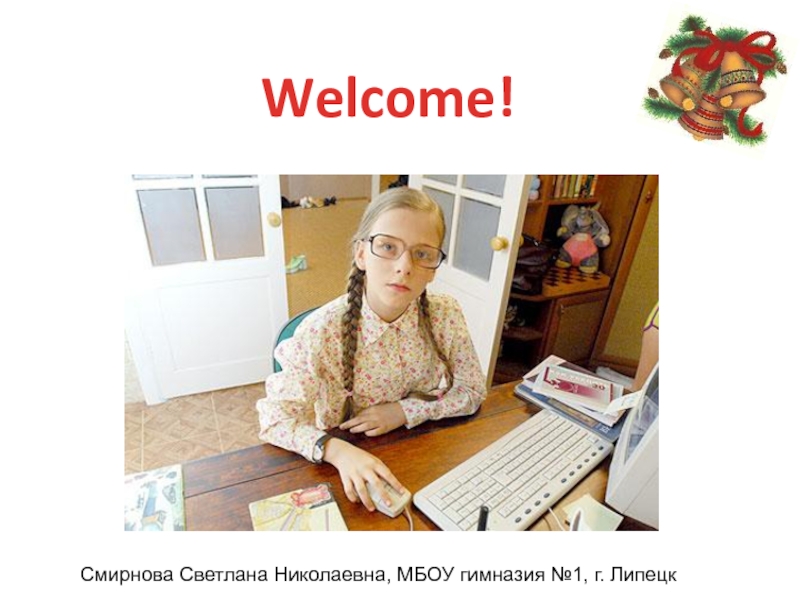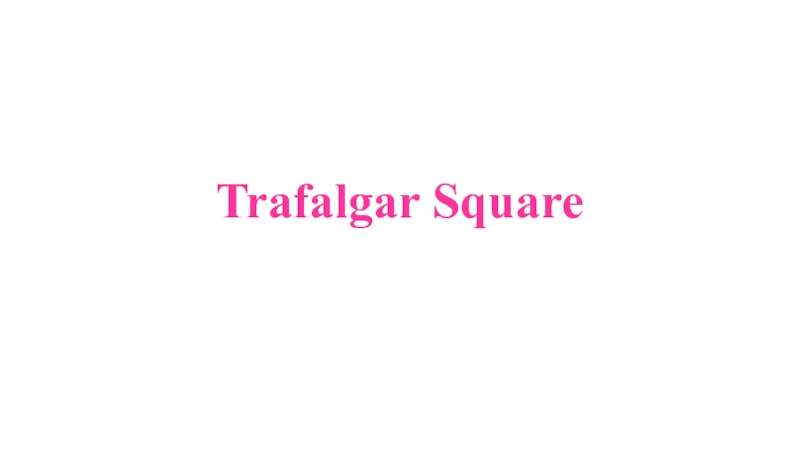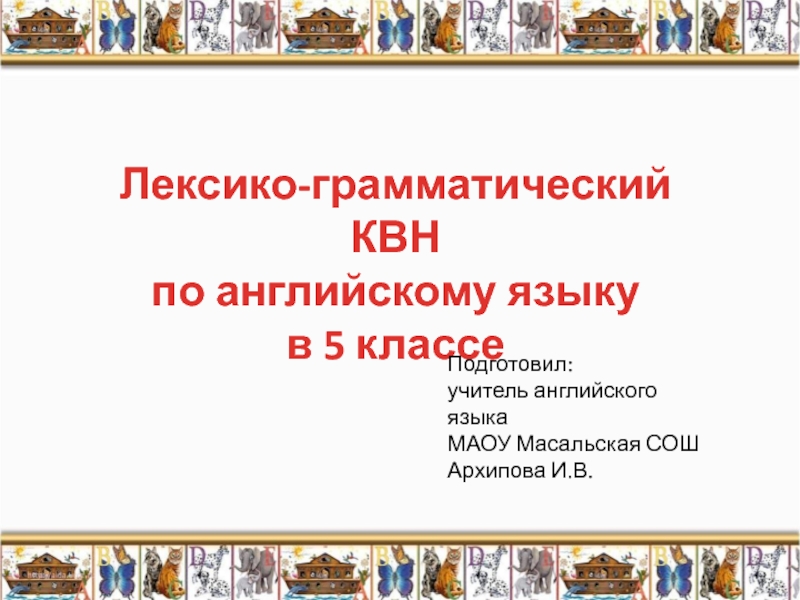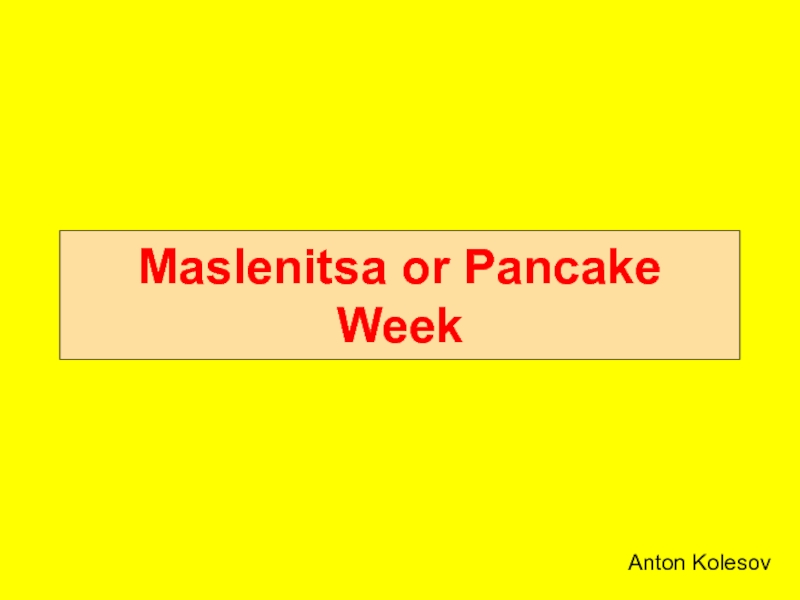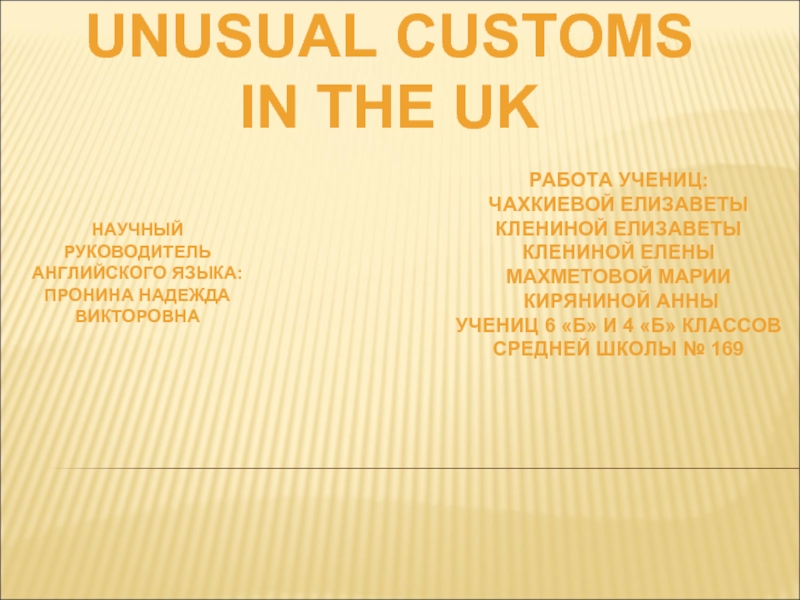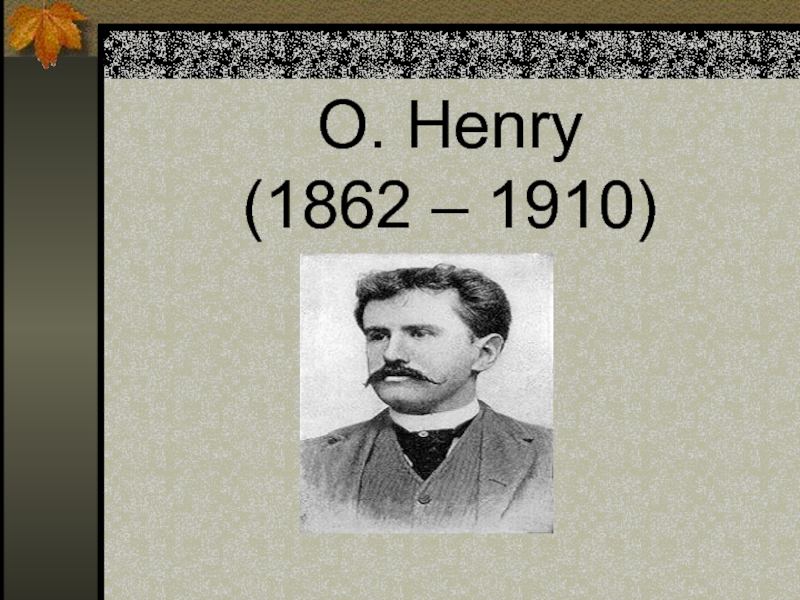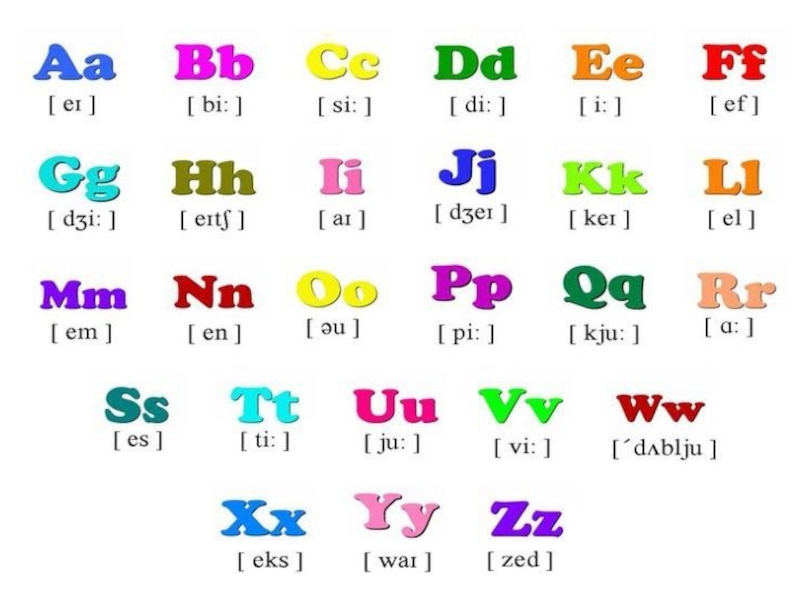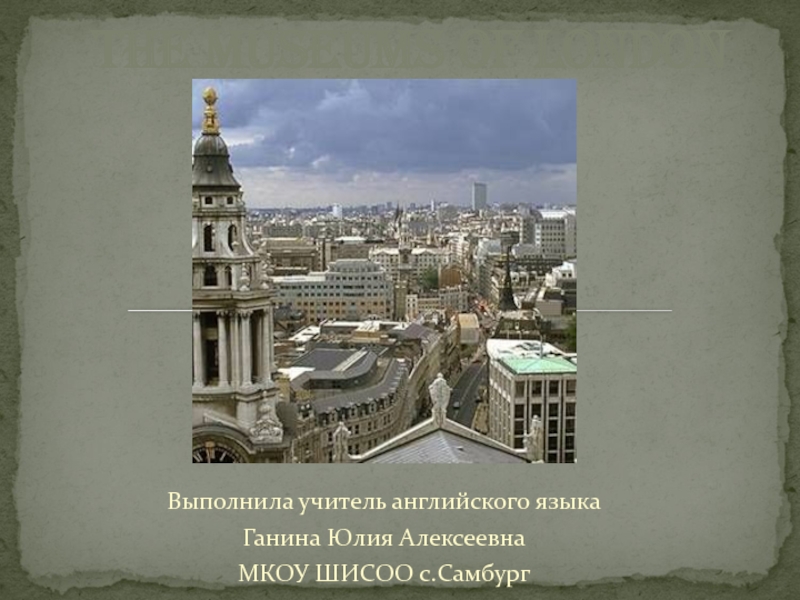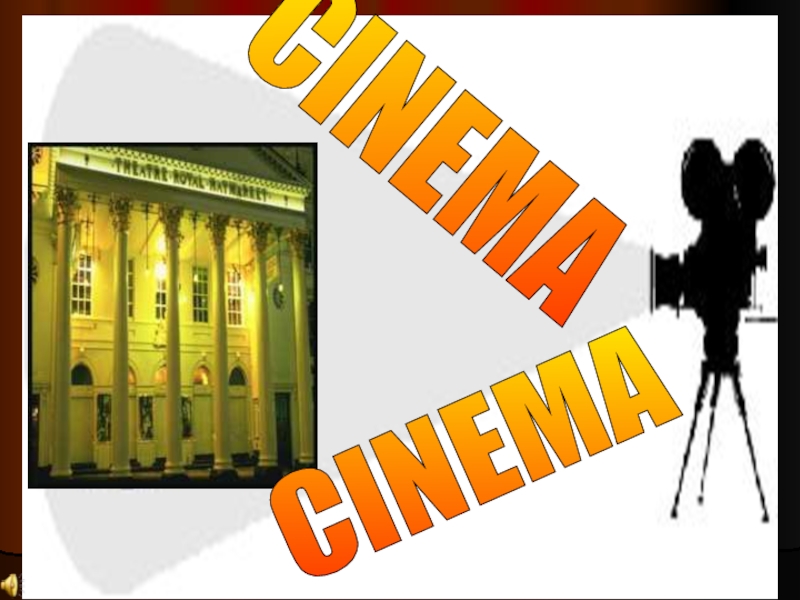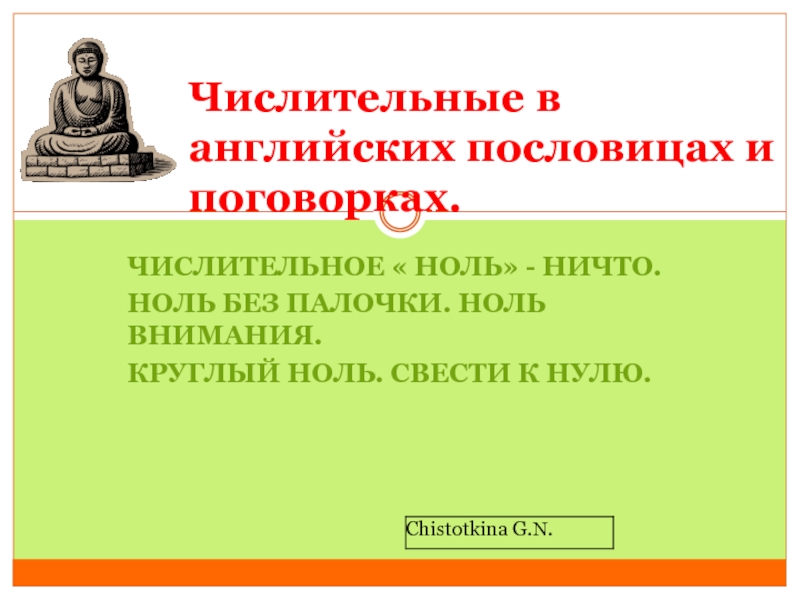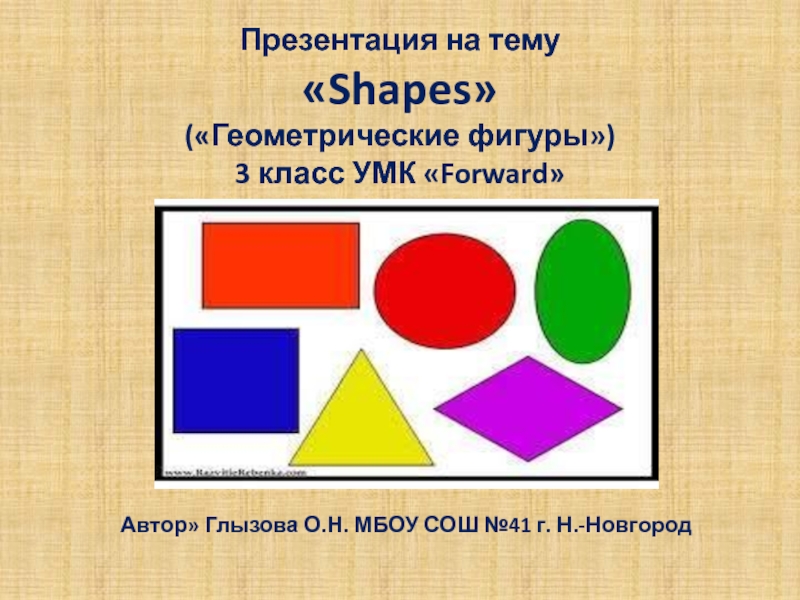Разделы презентаций
- Разное
- Английский язык
- Астрономия
- Алгебра
- Биология
- География
- Геометрия
- Детские презентации
- Информатика
- История
- Литература
- Математика
- Медицина
- Менеджмент
- Музыка
- МХК
- Немецкий язык
- ОБЖ
- Обществознание
- Окружающий мир
- Педагогика
- Русский язык
- Технология
- Физика
- Философия
- Химия
- Шаблоны, картинки для презентаций
- Экология
- Экономика
- Юриспруденция
Moods
Содержание
- 1. Moods
- 2. There are three moods (способи дієслова) in
- 3. The Indicative Mood represents an action as
- 4. The Subjunctive Mood represents an action not
- 5. Умовний спосіб виражає дію не як реальну,
- 6. There are four forms of the Subjunctive
- 7. The Conditional Mood
- 8. The Conditional Mood has two tenses: the Present and the Past.
- 9. The Present Conditional is formed by means
- 10. I should/would work. He (she, it, you, they) would work.
- 11. The Present Conditional expresses an action which
- 12. The Past Conditional is formed by means
- 13. Слайд 13
- 14. The Past Conditional is used to express
- 15. Скачать презентанцию
There are three moods (способи дієслова) in English: The Indicative Mood (дійсний) The Subjunctive Mood (умовний) and the Imperative Mood ( наказовий).
